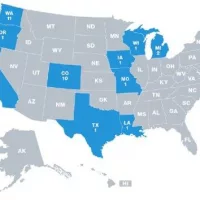
coscaron/iStockBy HALEY YAMADA, ABC News
(NEW YORK) — In-person playdates are still canceled, playgrounds are still closed and birthday parties are now “car parades.”
The coronavirus pandemic has disrupted all aspects of daily life for families. For kids who are missing their friends after weeks of staying home, it’s a major adjustment.
This all adds up to some potentially delicate and stressful situations for parents at home. That’s why Sesame Workshop launched a new resource hub for families — its “Caring for Each Other” initiative — to help families adjust to the “for-now normal,” including current challenges like how to cope with kids missing friends.
“Since children are spending a lot of time at home these days, they’re likely to really be missing friends from school and other parts of life. It is helpful to share with your child that you miss your friends too as a way to reinforce that these feelings are OK. There are ways to help children stay socially connected, even when they’re physically apart,” said Dr. Jeanette Betancourt, senior vice president of U.S. Social Impact at Sesame Workshop.
Betancourt shared five ways to help kids stay socially connected, even while apart.
1. Make the most of ‘virtual’ play dates
Video chatting is a great way to keep in touch with friends and family, but there are things you can do to help children make the most of their virtual play dates. Too many children on one screen can get chaotic, so consider limiting it to four children per call. Play with the silly filters available on many video chat apps and encourage children to make up stories about their new characters or settings. Play a simple game of show and tell, or share a special snack together. In one-on-one virtual play dates, children can each create something on their own — for instance, one child can build a block house and another can use play-dough to create people and pets that will live inside.
2. Involve the grownups
Invite a grandparent or other grownup to host “story time” or lead a family game of charades. At meals, set up your screen at the table so a friend of family member can “join” and chat with you.
3. You don’t need to remain on a screen to stay close
Encourage children to draw pictures and send them by mail to friends and family members. Make a fun video on a phone and send them to friends in texts or emails. For older children, set up a shared Google document with a friend and take turns writing parts of stories.
4. If children are seeing friends at a safe distance outdoors, help them choose new ways of saying hello
Children can shake both hands in the air as they do a wiggly dance, or make up their own special “hello” dances. Children can make a heart shape with their hands, blow kisses, or even give themselves a hug, pretending they’re hugging their friend. To remind children what six feet looks like (on a porch, for instance), you might put down masking tape or duct tape.
5. Mark milestones like birthdays or preschool graduations with something special
For birthday parties, host a video party and invite an adult friend or family member to dress up in a silly costume, lead children in song or circle games, tell jokes, or anything that might happen in person. Look at photos of friends and talk about special times they shared and what they’ll do when they see each other again. If your child is graduating preschool, create a “graduation certificate” together as a family. Take a picture to share with friends and family and invite them to share special messages of congratulations back. It’s important to celebrate milestones and keep close, even when we’re apart.
Copyright © 2020, ABC Audio. All rights reserved.















